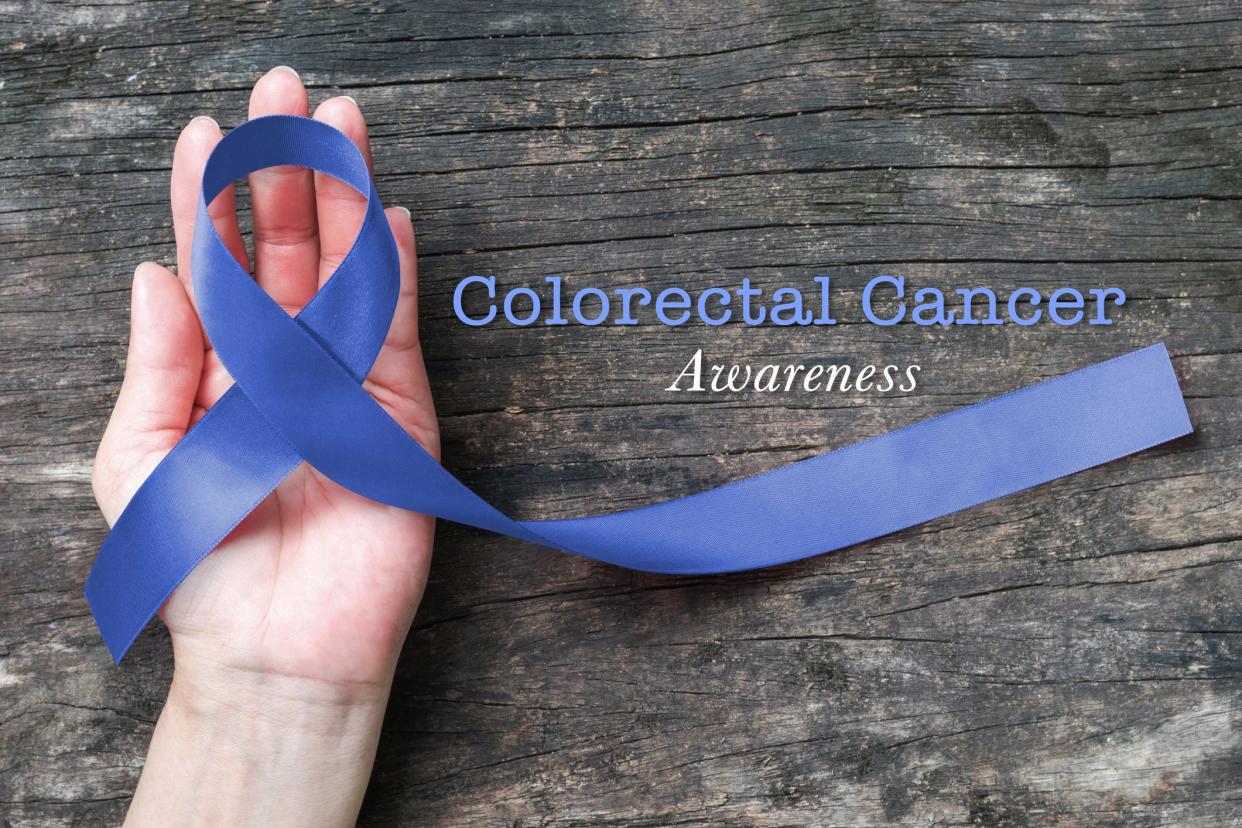COVID-19 pandemic backed up colon cancer screenings. Here's why you need them

In the U.S., cancer kills around 600,000 people annually. Of all malignancies, colon cancer is the third-most common cancer diagnosed among men and women. The American Cancer Society estimates there will be roughly 151,000 new cases of colorectal cancer diagnosed in 2022.
Colon cancer prevention has faced new challenges in recent years, with the COVID-19 pandemic having brought about a substantial decline in routine screenings. There has also been increasing evidence that colon cancer is on the rise among the younger population, leading to updated colon cancer screening guidelines over this last year.
Colon cancer screening has been shown to reduce the risk of developing colon cancer by up to 90%. In spite of this clear benefit, only around 67% of eligible adults are up to date with their screening. At the start of the pandemic, the Centers for Medicare and Medicaid Services recommended all non-urgent procedures be delayed, resulting in a 90% decline in colonoscopy screening. This in turn resulted in a 32% decline in new colon cancer diagnoses.
Throughout 2020, the overall number of colonoscopies performed declined by around 25% compared to 2019. Epidemiologic models have predicted that colon cancer incidence may increase by 10,000 over the next decade as a result of these declines. While much attention has been appropriately focused on the suffering caused by COVID-19, the indirect effects are substantial and should also be addressed. We need to make up for the lost ground.
Another challenge facing colon cancer prevention has been the alarming increase in colon cancer incidence among younger people. Recent research studies show an uptick in colon cancer incidence of 2% per year among patients under the age of 50. The American Cancer Society has reported that people born in 1990 have double the risk of colon cancer and quadruple the risk of rectal cancer compared to those born in 1950.
Research is still ongoing as to why this may be, though there is some evidence to suggest that environmental factors such as obesity, poor diet and sedentary behavior play a role. There is also evidence that younger patients tend to have more advanced colon cancer at the time of diagnosis, suggesting they may have delayed seeking out care for their symptoms.
In response to these data, multiple societies, including the American Cancer Society, as well as U.S. Preventive Services Task Force, are now recommending colon cancer screening start at 45 instead of 50. This is quite a monumental change and bears repeating: 45 is the new 50. Help us spread the word!
With these challenge, colon cancer screening must be more broadly utilized in order to reach those who need testing. There are a variety of screening tests that can be done, though current data suggest a high-quality colonoscopy is the best of the available methods. This test is associated with the highest number of colon cancer cases avoided, assuming one gets testing at regular 10-year intervals.
A colonoscopy has the ability to view the entire colon while also allowing for detection and removal of precancerous polyps. The American Society for Gastrointestinal Endoscopy says it is the only test suitable for individuals with risk factors such as family history of colon cancer. There also are stool-based testing options, though these require more frequent checks than a high-quality colonoscopy.
A FIT test (fecal immunochemical test, recommended annually) detects microscopic amounts of blood. The Cologuard test is another stool-based test that detects microscopic blood as well as DNA cancer markers, and it must be done every three years. While both offer some protection and can detect from 79-92% of cancers, they are only able to detect a fraction of precancerous polyps compared with colonoscopies.
As the U.S. Preventive Service Task Force has noted, “the best screening test is the one that gets done.”
This is certainly true, as any test is better than no test, though it is worth keeping in mind that the colonoscopy is our best tool to detect and prevent colon cancer. Talk to your doctor about getting screened and help save lives by spreading the news that when it comes to colon cancer screening.
Dr. Nathan Holman is one of nine gastroenterologists at Lane County's GI group, Eugene Gastroenterology Consultants.
This article originally appeared on Register-Guard: COVID-19 pandemic delayed colon cancer screenings
